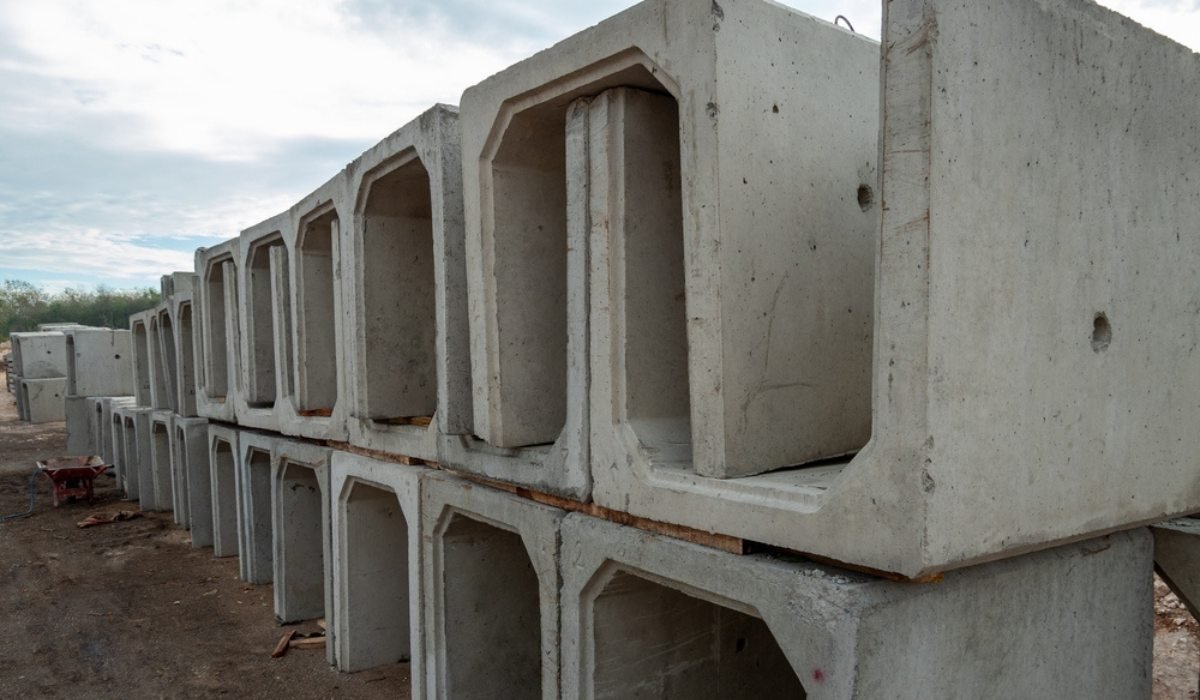8 Compelling Reasons to Choose Concrete Box Culverts Over Alternatives

When it comes to constructing underground structures like culverts, engineers and contractors, have a range of materials to consider. However, box culverts constructed of concrete have emerged as a popular and superior choice due to their exceptional qualities.
This blog post will delve into eight compelling reasons why concrete box culverts outshine alternative materials, providing durability, strength, versatility, hydraulic efficiency, low maintenance, environmental sustainability, fire resistance, and cost-effectiveness.
Unmatched Durability
Concrete box culverts are renowned for their exceptional durability. Composed of cement, aggregates, and water, concrete can withstand heavy loads, extreme weather conditions, and corrosion better than many other materials.
This durability ensures that concrete culverts maintain their functionality and structural integrity for decades, making them a reliable long-term solution.
Superior Strength and Load-Bearing Capacity
One of the key advantages of concrete box culverts is their outstanding strength and load-bearing capacity. These structures can effectively handle heavy traffic loads, making them ideal for roadways, highways, and railway crossings.
The robust nature of concrete ensures that the culverts can withstand the weight of vehicles, earth, and other loads without compromising their structural integrity, ensuring safety and longevity.
Remarkable Versatility
Concrete box culverts offer unparalleled versatility in terms of design and customization. They can be manufactured in various shapes and sizes to suit specific project requirements. Whether a project demands a square, rectangular, or even an arched culvert, concrete can be molded and reinforced accordingly. This adaptability allows concrete box culverts to meet a wide range of construction needs.
Excellent Hydraulic Efficiency
The smooth interior surface of concrete culverts ensures excellent hydraulic efficiency. Concrete provides a superior flow of water, reducing the risk of blockages and flooding. The absence of joints or seams inside the culverts minimizes the chances of debris accumulation, enabling a constant flow rate and mitigating potential damage caused by excessive water pressure. This hydraulic efficiency is critical for ensuring the proper functioning of drainage systems.
Low Maintenance Requirements
Concrete box culverts are renowned for their low maintenance requirements. Thanks to the durability of concrete, these structures demand minimal repairs and replacements over their lifespan.
The non-porous nature of concrete makes it resistant to deterioration from chemicals, erosion, and environmental factors. As a result, project owners can enjoy significant cost savings and reduced maintenance efforts throughout the lifespan of the culverts.
Environmental Sustainability
Concrete box culverts are an environmentally sustainable choice. Concrete is manufactured using abundant and naturally occurring materials, and its production process has a lower carbon footprint than alternative construction materials.
Moreover, concrete culverts can be recycled and reused at the end of their service life, further reducing environmental impact. Opting for concrete box culverts promotes eco-friendly construction practices.
Enhanced Fire Resistance
Concrete offers excellent fire resistance, making it a safe choice for box culverts. Concrete structures provide a high level of protection and containment in the event of a fire. This characteristic is particularly crucial in areas where culverts may be exposed to potential fire hazards, such as industrial zones or regions prone to wildfires.
The fire resistance of concrete box culverts ensures the safety and integrity of underground infrastructure.
Long-Term Cost-Effectiveness
Despite the initial investment costs, concrete box culverts are cost-effective in the long run. Their durability, low maintenance requirements, and extended service life result in significant savings over time.
Concrete culverts can be manufactured off-site, enabling faster installation, reduced labor costs, and minimized disruption to ongoing construction projects. The long-term cost-effectiveness of concrete box culverts makes them a favorable choice for budget-conscious project owners.
Conclusion
Concrete box culverts offer many benefits that set them apart from alternative materials. Concrete culverts provide a comprehensive solution for various construction projects, from their unmatched durability and strength to their hydraulic efficiency, low maintenance requirements, environmental sustainability, fire resistance, and long-term cost-effectiveness. By opting for concrete box culverts, engineers and contractors can ensure the longevity, reliability, and efficient performance of underground structures, meeting the demands of modern infrastructure while promoting sustainable practices.